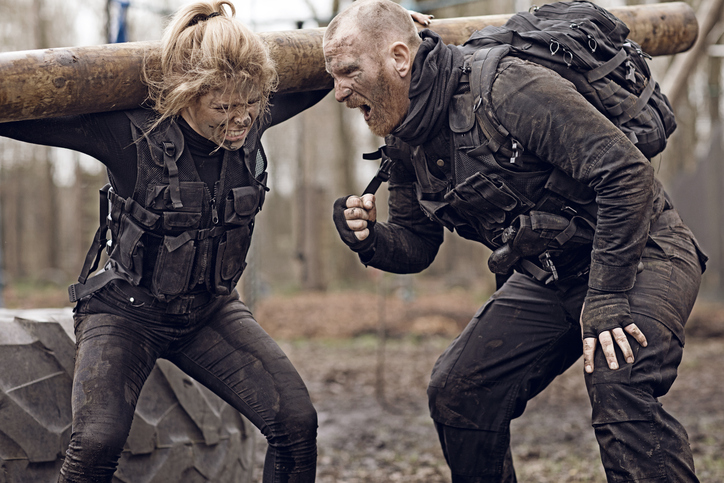Recently, CBC news aired a story about abuse of Canadian soldiers on escape and evasion exercises in the 1980s and ‘90s. As so often happens with contemporary journalism, knowing nothing about the subject is no bar to blithering about it, and the reporters hunted around for a couple of talking heads to add another tuppence of indignation and concern.
Escape and evasion training can be brutal, and wasn’t always as carefully conducted as it is now. However, like a few other things, it is a part of military training that everyone else doesn’t really need to know about.
After the Second World War, it was startling to realize just how much information could be gleaned from prisoners even in gentle hands. One Luftwaffe interrogator got volumes of material from downed airmen with sympathy and cigarettes alone. There was also the survival rate of POWs in Japanese hands to consider.
The Korean War raised the issue yet again, particularly as Western Militaries learned about “Brainwashing” and other practices being used against captured UN troops in Korea. It was clear afterwards that what the Americans call SERE (Survival, Evasion, Resistance and Escape) was going to be useful; and training exercises began in the 1950s. They are still necessary, but yes, we were making up standards as we went along.
It might surprise the CBC to learn this, but the Canadian military has not encountered any opponent since 1945 that has ever abided by the Hague or Geneva Accords. The last opponent we faced who – to Western military personnel anyway – generally abided by the rules of war was Nazi Germany, and we all know how imperfectly they respected those.
As a Reservist back in the 1970s and 80s, I was involved in four SERE exercises. Once on the run myself (and I wasn’t caught), once as part of the control staff, and twice running an interrogation centre.
The troops that passed through my hands were ‘conditioned’ to feel psychologically dislocated and isolated; they were bound and blind-folded, and subjected to sleep deprivation and hardship. What they didn’t know, however, was that the real object of the interrogation centre was to encourage them to resist and escape.
The Military Police (MP) and Intelligence types who handled my prisoners were proud of the ones who gave them the hardest time and impressed by the ones who said nothing. No ‘POW’ got a hint of this respect until later. The MPs also gave considerable care and attention to arranging ‘gaps’ in their security. A prisoner who noticed them and made a good escape attempt ‘graduated’, and was taken out of the exercise.
I also noticed that my MPs spent a lot of time carefully watching each other. It is easy to become brutal and contemptuous to people under your complete control – which is why SERE training was necessary in the first place. The MPs were aware of this temptation and guarded against it.
SERE Training is a lot more expert for Special Forces types and fighter pilots than it was for us, and there are many other skills that a soldier needs to hone to a greater degree. It remains true, however, that whatever our soldiers might have encountered in a two or three-day exercise is nothing compared to what might await them in hostile hands.
Learning that you are never helpless is a valuable lesson.
John Thompson is a researcher, writer and commentator on defence and security issues at www.thinktankofone.com
Pursuit.ca


